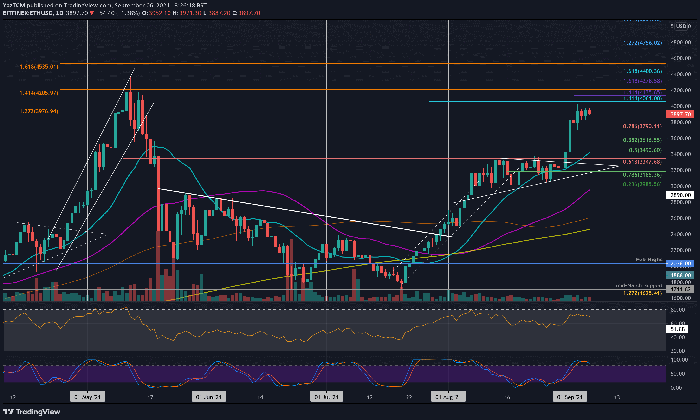In the fast-evolving world of digital finance, staying updated with the latest crypto news is essential for investors, enthusiasts, and industry watchers alike. Recently, significant developments have emerged, particularly surrounding FTX’s restructuring plan, which is set to commence creditor payments in May 2025, offering some hope to cryptocurrency creditors grappling with past losses. Additionally, the controversial clemency granted to former BitMEX CEO Arthur Hayes and his colleagues marks a pivotal moment in the ongoing saga of cryptocurrency exchange updates. These stories highlight the ongoing legal battles within the crypto space, illustrating the complex landscape that challenges both regulators and exchange operators. As part of the latest in FTX news and the implications of BitMEX’s legal troubles, this weekend has been anything but quiet for those following the cryptocurrency scene.
As the digital currency landscape continues to evolve at a rapid pace, recent happenings have captured the attention of market participants and analysts alike. This includes notable updates from cryptocurrency exchanges that have faced legal scrutiny and restructuring efforts, specifically regarding FTX and BitMEX’s milestones. The announcement of impending payments to creditors by FTX sheds light on the complexities surrounding asset recovery and the ramifications of past regulatory violations. Meanwhile, the pardon of BitMEX’s former leadership intertwines themes of accountability and redemption in a sector still navigating its regulatory framework. Together, these developments paint a vivid picture of the cryptocurrency industry’s current and future dynamics, making it essential for stakeholders to remain informed.
FTX Creditor Payments Mark a Turning Point in Bankruptcy Progress
The recent announcement by FTX regarding the commencement of creditor payments marks a pivotal moment in the company’s path to recovery from its notorious bankruptcy. As major creditors await the upcoming distribution set for May 2025, the cryptocurrency world watches closely. FTX has made headlines not just for its past irregularities but also for its potential recovery trajectory, with $11.4 billion in assets earmarked for repayment. Compared to initial estimates, the return of up to 119% of the creditors’ claims reflects a surprising turn of events for many in the crypto industry, demonstrating that even after significant turmoil, recovery is possible.
However, the repayment process has its challenges, particularly for smaller creditors who had been neglected in initial recovery phases. With claims below $50,000 receiving their settlements, a sense of urgency and hope permeates the cryptocurrency community. Nonetheless, the lengthy process to arrive at this point reveals a broader concern regarding the operational standards of cryptocurrency exchanges. Enhanced regulations and governance structures may become a necessity to avoid similar scenarios in the future and ensure that the confidentiality of clients and their funds is protected.
Arthur Hayes: Impact of Pardon on BitMEX and Future Regulations
Arthur Hayes’ pardon by President Trump has reverberated across the cryptocurrency landscape, reigniting discussions on regulatory frameworks and compliance. As the former CEO of BitMEX, Hayes was embroiled in serious legal battles concerning violations of key regulations, particularly surrounding the Bank Secrecy Act. His legal troubles highlighted the flaws in the operational practices of cryptocurrency exchanges and the urgent need for compliance adherence. By securing a pardon, Hayes and his co-founders have shifted focus back onto BitMEX, which may now explore new avenues for restoring its reputation and operational protocols.
The implications of this pardon extend far beyond individual lifelines; they could potentially shape legislative perspectives on digital currencies and trading platforms. With ongoing scrutiny from federal agencies and the potential for new regulations, exchanges may find themselves under more intense pressure to demonstrate strict adherence to compliance Charters. As cryptocurrency continues to evolve, the lessons learned from Hayes’ case alongside ongoing FTX developments may influence regulatory approaches, steering toward a more secure and responsible trading environment.
Crypto News This Week: Trends and Market Implications
This weekend’s crypto news has been characterized by significant developments affecting market stability and investor confidence. The dual announcements from FTX and the pardoning of BitMEX leaders have created a momentum shift in the perception of risk within the cryptocurrency exchanges. Investors are keenly observing how these events could reshape the operational guidelines and trust model of exchanges, which have historically faced challenges regarding transparency and regulatory compliance. As the largest exchange-related controversies slowly conclude, the future of trading platforms remains in a delicate balance between recuperating observer trust and ensuring robust regulations.
Moreover, the broader implications of these recent crypto news developments are expected to trickle down into market behavior, affecting both minor and significant investors alike. The recovery of FTX, combined with Hayes’ pardon, could bolster market confidence and potentially attract new investment. However, industry experts caution that while the news is optimistic, it must be approached carefully, as the volatile nature of cryptocurrencies has showcased the potential for rapid changes. Therefore, stakeholders should remain vigilant, monitoring legal outcomes and compliance adjustments closely as they navigate through this evolving landscape.
Legal Battles in Cryptocurrency: Learning from FTX and BitMEX
The past weekend has underscored a vital lesson in the cryptocurrency universe, particularly through the lens of legal battles faced by giants like FTX and BitMEX. These cases serve as cautionary tales about the dire consequences of regulatory non-compliance and ineffective governance in the rapidly expanding blockchain arena. As FTX gears up for its recovery journey with a significant payout plan, the details of their bankruptcy are closely intertwined with regulatory implications that could redefine how all cryptocurrency exchanges operate in the future.
On the other side, BitMEX’s legal hurdles have prompted discussions on the necessity of strict adherence to financial laws designed to protect investors and maintain a fair market. As the push for greater regulatory standards escalates, cryptocurrency exchanges must adapt swiftly to avoid similar pitfalls. These legal battles are not just past challenges but also are reflective of the archetype organizations must follow to ensure sustainable operations. Stakeholders, including investors and cryptocurrency creditors, will be closely following these developments and the subsequent reforms to enhance compliance and accountability.
FTX’s Recovery: A Case Study in Extraordinary Measures
The ongoing recovery efforts within FTX highlight the extraordinary measures the company has taken to ensure the maximization of creditor repayments. The decision to distribute a substantial portion of its recovered assets derived from the company’s attempts to reclaim lost crypto and liquidate other investments is commendable. As FTX embarks on the repayment for creditors, it sets a precedent for how other distressed cryptocurrency entities may proceed in navigating their financial turmoil and legal complexities, focusing on transparency and accountability.
Moreover, this case study serves as a pivotal moment in the cryptocurrency realm, indicating that revival is possible even in bleak scenarios. The mechanisms that FTX has employed not only provide a roadmap for other exchanges facing regulatory scrutiny but also demonstrate the importance of reinforcing trust among customers and regulatory authorities. The focus on transparency, as illustrated by FTX’s public handling of creditor communications and asset distributions, may encourage a new wave of operational practices across the industry to solidify confidence and compliance, key aspects for thriving amidst scrutiny.
The Significance of Compliance in Cryptocurrency Exchanges
The recent legal challenges faced by both FTX and BitMEX emphasize an undeniable truth in today’s cryptocurrency landscape: compliance is no longer optional, but rather, an essential pillar for operational integrity. As exchanges operate in a global environment fraught with regulatory complexities and investor skepticism, adherence to the rules serves as a protective measure for both the platforms and their users. With major exchanges undergoing intensive scrutiny, the call for standardized practices and compliance protocols resonates louder than ever, highlighting the need for cryptocurrency entities to invest heavily in effective compliance frameworks.
Moreover, the outcomes of these recent legal battles could influence future regulations, prompting exchanges to establish more rigorous standards. Companies may consider adopting enhanced know-your-customer (KYC) verification processes and robust anti-money laundering (AML) practices to build customer trust and secure their operations. As the cryptocurrency industry continues to mature, those platforms that prioritize compliance will likely emerge as leaders in the space, gaining not only regulatory approval but also respect from the investor community looking for safe and trustworthy trading environments.
Implications of Regulatory Changes for Future Cryptocurrency Operations
As both FTX and BitMEX navigate their respective recoveries and legal repercussions, the cryptocurrency industry stands on the precipice of potential regulatory overhaul. The pardoning of BitMEX leadership in tandem with FTX’s creditor payments could signal a shift towards more lenient enforcement of existing laws, or alternatively, a movement towards stricter oversight. The uncertainty of impending regulatory developments is driving market speculation, as stakeholders brace for potential impacts on trading platforms and their operational frameworks.
Investors should keep a keen eye on how current events unfold, as those regulations crafted in response to past failures will shape the future of cryptocurrency operations. The hope is that lessons learned will lead to stronger protections for investors, ensuring a safer marketplace. Beyond just adapting to changes, exchanges may have to proactively advocate for regulations that support innovation while maintaining user security, promoting a balanced ecosystem where both cryptocurrency liquidity and regulatory compliance coexist harmoniously.
Investor Confidence: The Role of Leadership in Cryptocurrency Recovery
The role of leadership in navigating crises has never been more pronounced than in the cryptocurrency sector, as evidenced by FTX’s recent recovery announcements and BitMEX’s leadership reprieve. Effective leaders capable of implementing strategic recovery plans while adhering to compliance guidelines embody the essence of resilience during turbulent times. As investor confidence is primarily derived from management’s decisions, exchanges must prioritize bringing capable leadership to the forefront, especially when overcoming past challenges that have shaken market trust.
Moreover, the current landscape provides an opportunity for exchanges to reassess their governance models and articulate clear compliance strategies. Transparent communication from those at the top to stakeholders fosters trust and can dramatically affect investor sentiment during uncertain times. As seen with the recent movements in FTX and BitMEX, competent leadership not only steers the ship away from potential regulatory storms but also establishes a foundation for long-term stability and growth, essential elements for the successful future of cryptocurrency trading.
Looking Ahead: The Future of Cryptocurrency Exchanges
The developments surrounding FTX and BitMEX serve as a critical reflection on the future of cryptocurrency exchanges. As the industry grapples with recovery and regulatory compliance, it must also embrace a forward-thinking approach that prioritizes stability and investor security. Whether through innovative technology to enhance customer trust or adopting robust compliance systems, the road ahead is framed by a commitment to quality practices that engender confidence among users.
Moreover, as exchanges continue to evolve, understanding the importance of mitigating risks and safeguarding user interests will be vital. The likelihood of emerging regulatory frameworks will challenge exchanges to adapt or face stringent penalties, pushing them toward a reimagined future where compliance is integrated from the beginning rather than as an afterthought. The evolution of cryptocurrency exchanges will hinge on their ability to learn from past missteps, ensuring a promising landscape that accommodates both growth and regulatory harmony moving forward.
Frequently Asked Questions
What are the latest FTX news updates regarding creditor payments?
The latest FTX news indicates that the cryptocurrency exchange plans to start paying its major creditors on May 30, 2025. With $11.4 billion in assets, FTX aims to compensate creditors who have claims exceeding $50,000. Smaller creditors have already begun receiving payments.
How has the Arthur Hayes pardon affected the cryptocurrency exchange landscape?
The Arthur Hayes pardon granted by President Trump has significant implications for the cryptocurrency exchange landscape. It highlights the continuing legal complexities faced by cryptocurrency exchanges like BitMEX, which previously encountered immense legal scrutiny under US financial regulations. This development could potentially affect future regulatory approaches and the operational strategies of cryptocurrency platforms.
What are the recent developments in cryptocurrency exchange updates related to BitMEX?
Recent cryptocurrency exchange updates reveal that BitMEX, once led by Arthur Hayes, faced multiple legal challenges regarding compliance with the Bank Secrecy Act. The exchange has now been pardoned, which may signal a shift in regulatory outlook for cryptocurrency exchanges moving forward.
How are cryptocurrency creditors being compensated by FTX?
Cryptocurrency creditors of FTX will receive compensation starting in May 2025, with major creditors expected to gain payouts that reflect 118-119% of their claims. This repayment approach stems from the recovery of significant assets by FTX following its bankruptcy in late 2022.
What legal battles has BitMEX faced recently?
BitMEX has faced extensive legal battles, including charges from the US Department of Justice for violations of the Bank Secrecy Act. The platform and its leadership were scrutinized for failing to implement adequate customer identification processes, leading to significant fines and, recently, pardons from President Trump after their lengthy legal processus.
| Key Point | Details |
|---|---|
| FTX’s Creditor Payments | FTX plans to start paying creditors in May 2025, having accumulated $11.4 billion in assets. Payments will prioritize creditors with claims over $50,000. |
| Background on FTX | FTX collapsed in November 2022 due to mismanagement of customer funds by Sam Bankman-Fried, filing for bankruptcy shortly after. |
| Compensation Rates for Creditors | Creditors are expected to receive 118-119% of their claims value, based on crypto values as of November 2022. |
| Pardons for BitMEX Leadership | Arthur Hayes and other BitMEX leaders received pardons from President Trump after legal issues regarding the Bank Secrecy Act. |
| Legal Challenges for BitMEX | BitMEX faced charges for not implementing KYC procedures leading to significant fines and legal settlements. |
Summary
Crypto news this weekend highlighted significant developments in the cryptocurrency space, particularly FTX’s plans to begin creditor payments in May 2025. With a focus on clearing debts from its extensive bankruptcy proceedings, FTX’s initiative is a critical step in addressing the fallout of its collapse. Additionally, the pardoning of key BitMEX figures by President Trump marks a notable moment in regulatory history as the crypto sector grapples with ongoing legal challenges. These events underscore the evolving landscape of cryptocurrencies and their regulatory environment.
In the latest wave of crypto news, significant developments from the cryptocurrency landscape are shaping the future for many investors and creditors alike. This weekend, FTX announced plans to commence payments to its major creditors by May 2025, a critical milestone after its tumultuous collapse in 2022. As the dust settles, former BitMEX CEO Arthur Hayes has received a pardon from President Trump following legal battles surrounding regulatory violations that plagued the exchange. These cryptocurrency exchange updates signal a pivotal shift in the industry, highlighting the challenges and triumphs faced by entities like FTX and BitMEX. Moreover, with FTX creditors set to receive substantial reimbursements, the landscape for cryptocurrency creditors is evolving, fostering a renewed sense of urgency and excitement in the digital currency market.
Delving into the latest happenings within the digital currency sector, it’s crucial to stay informed about the current crypto developments impacting investors and users. Recent announcements from the defunct FTX platform have shed light on the long-awaited timeline for creditor reimbursements set to kick off in May 2025. Additionally, the pardoning of Arthur Hayes, once at the helm of BitMEX, serves as an intriguing chapter in the saga of cryptocurrency exchanges battling legal challenges. These cryptocurrency shifts not only affect stakeholders but also resonate with broader trends in regulatory environments and market dynamics. As stories unfold about major exchanges recovering from crashes and individuals navigating the intricacies of legal battles, keeping up with cryptocurrency industry news becomes ever more essential.














